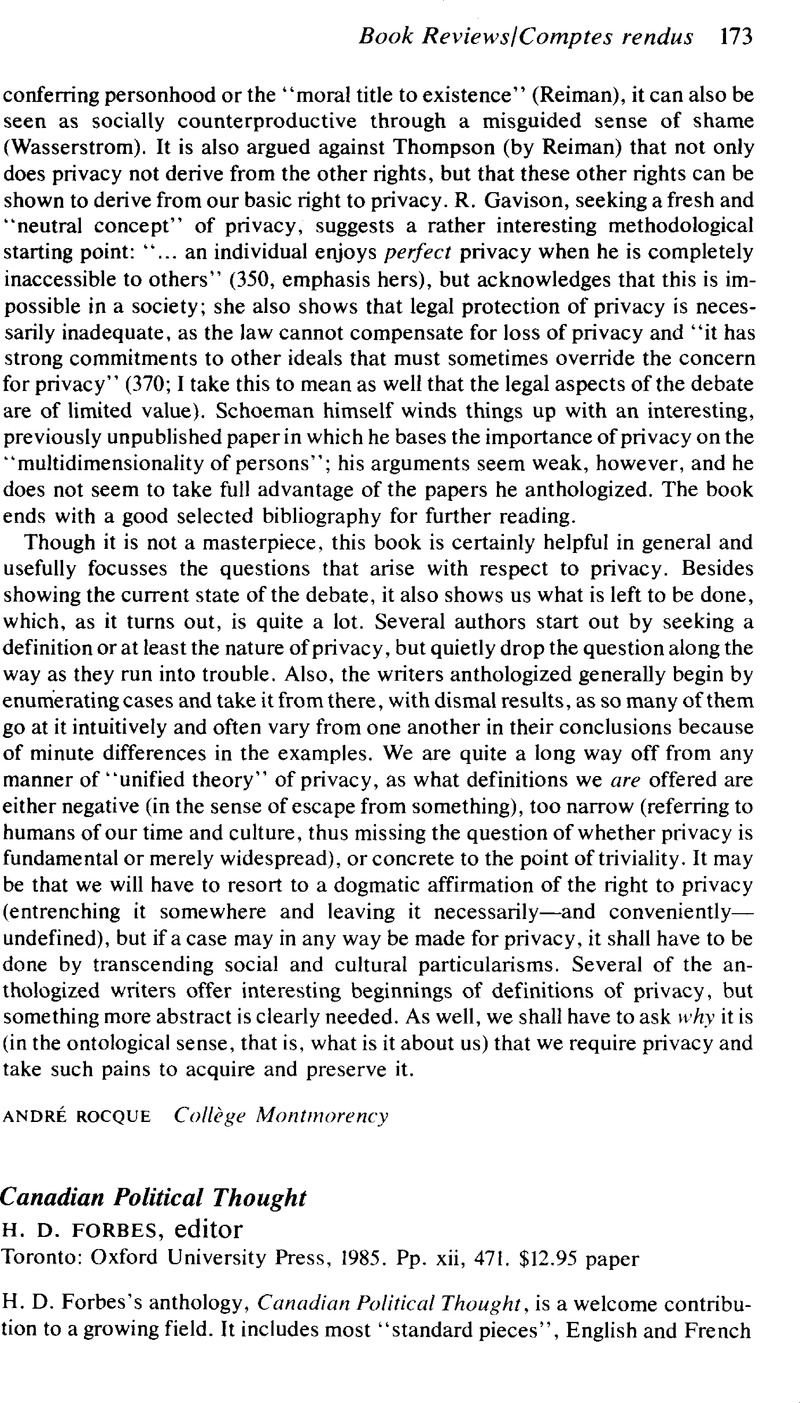No CrossRef data available.
Published online by Cambridge University Press: 13 April 2010

1 Forbes mysteriously excludes Harold Innis, C. B. Macpherson, Lord Durham, and Thomas Berger from Canadian Political Thought, while including marginal pieces by Leacock, Shortt, Dales, Smith and Grant. His book complements Cook's, RamsayFrench Canadian Nationalism: An Anthology (Toronto: Macmillan, 1969)Google Scholar, and Brooks, S., ed., Political Thought in Canada (Toronto: Irwin, 1984)Google Scholar.
2 On Canadian ideologies see Christian, W. and Campbell, C., Political Parties and Ideologies in Canada (Toronto: McGraw-Hill Ryerson, 1974).Google Scholar
3 On empire see Mallory, J. R., The Structure of Canadian Government (Toronto: Macmillan, 1971).Google Scholar On Toryism see Berger, Carl, The Sense of Power: Studies in the Ideas of Canadian Imperialism, 1867-1914 (Toronto: University of Toronto Press, 1970),Google Scholar and Shortt, A., ed., The Search for an Ideal (Toronto: University of Toronto Press. 1976). chaps. 1-5Google Scholar.
4 Schmidt, L., ed., George Grant in Process (Toronto: Anansi, 1978), 63Google Scholar. Also see Norcia, V. di. “Beyond the Red Tory: Rethinking Canadian Nationalism” Queen's Quarterly 91/4 (Winter 1984), 956–968Google Scholar.
5 See Innis, Harold, Essays in Canadian Economic History (Toronto: University of Toronto Press, 1973), 201-222, 291-308, 358-371, 394–412.Google Scholar On the liberal tradition of autonomy from Britain see Berger, C., The Writing of Canadian History (Toronto: Oxford University Press, 1977)Google Scholar.
6 See Penner, N., The Canadian Left (Toronto: Prentice-Hall, 1977).Google Scholar On decentralism see Bercuson, D., Canada and the Burden of Unity (Toronto: Macmillan, 1977)Google Scholar.
7 Smith, A., Theories of Nationalism (London: Duckworth, 1970), 158f., chap. 10.Google Scholar
8 de la Boetie, Etienne, The Politics of Obedience: The Discourse of Voluntary Servitude, trans. Kurz, H. (Montreal: Black Rose, 1975), 46, 50, 60–70, 75.Google Scholar